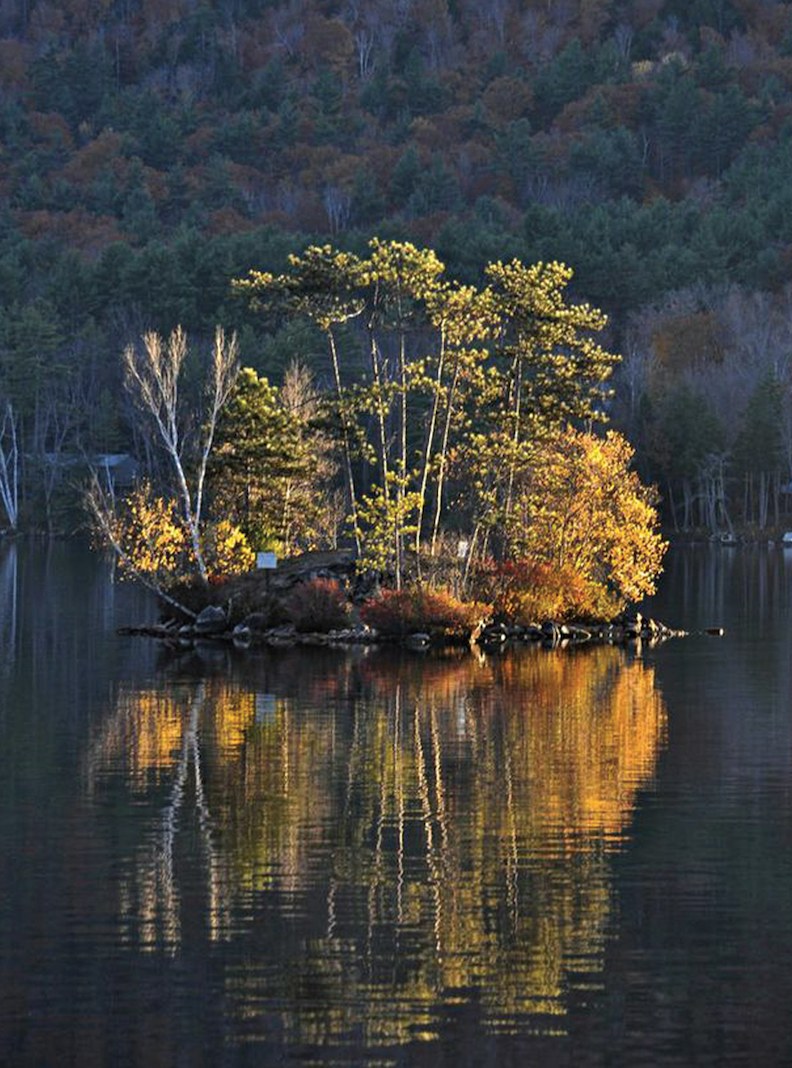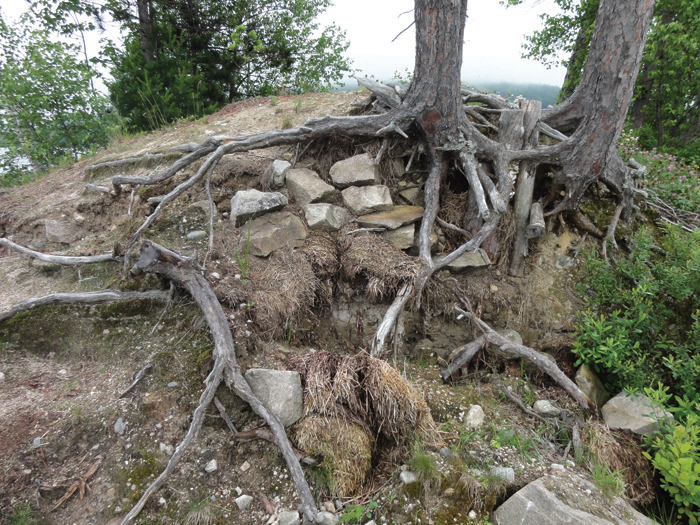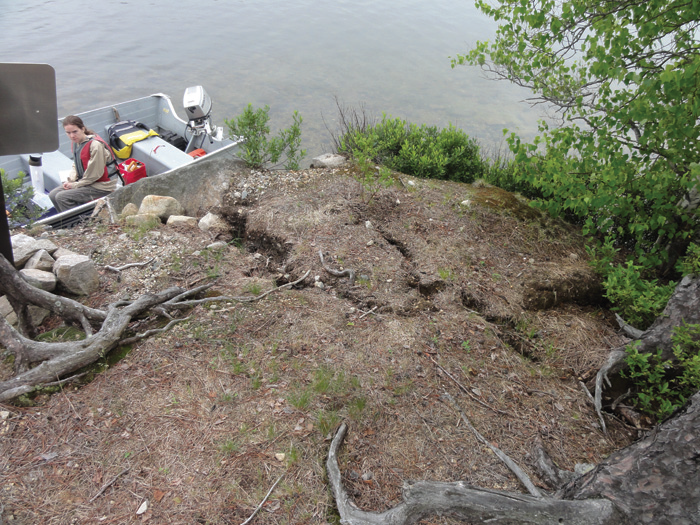- Have Any Question?
- 443-983-5232
- info@moosepondassociation.org
Controlling Erosion on Caruso Island
- Home
- Controlling Erosion on Caruso Island

Project Details
- Category : Erosion
- Date : Fall 2013
- Status : Ongoing
- Tags : Island, Erosion
- Live demo : None
- 15 Jul 2013
- Erosion
Controlling Erosion on Caruso Island
Caruso Island, that frequently photographed speck of land just to the south of the causeway, is eroding. Moose Pond Association members are working to do something about it both for the island’s scenic value and to keep eroding land out of the pond.
Association members have been monitoring erosion on the island for several years. In the past, the island has been a stopping point for boaters, creating a potentially unstable situation because of the wear and tear and loss of vegetation. Beginning in 2011, native ground cover was planted to help control the erosion. The current posted signs asking boaters to stay off the island have been successful in deterring visitors, but last winter Mother Nature seemed to have taken over despite MPA’s best efforts. This past spring significant new erosion was discovered.


The soil under the roots of several of the red pines on the island had significantly worn away, baring large sections of the roots. In addition, two new deep gullies had formed on the east and west sides of the island. If these gullies had continued to deepen through erosion, chunks of land may well have separated from the island. Colin Holme, assistant director of LEA, developed an erosion control plan for MPA to remedy the problems.
On September 14th, a group of seven volunteers including Alice Gold, Mark, Ian and Colin Patterson, Herb and Susan Farnsworth and Steven Whitten spent an afternoon working on the island. Hay was stuffed between the bare roots and soil to prevent further erosion under the roots, with the hope that the hay would decompose into mulch, which, in turn, would provide a layer of soil-like matter, enriching the existing poor soil. The second step was to fill the gullies with erosion-control mulch, which is a coarse mulch made from shredded wood products and contains some stones. It is less likely to be washed away by storms, so it is an ideal medium for all types of erosion control projects, including residential paths and banks. It is available in bulk from local suppliers.
This effort was completed under the watershed erosion control grant that Moose Pond Association had obtained from the state through the Cumberland County Soil and Water Conservation District. As a result, our expenses were covered. Many thanks to all our volunteers, Heather True at the Conservation District, and Colin Holme at LEA. We all hope next spring we will be able to declare this project a success.
